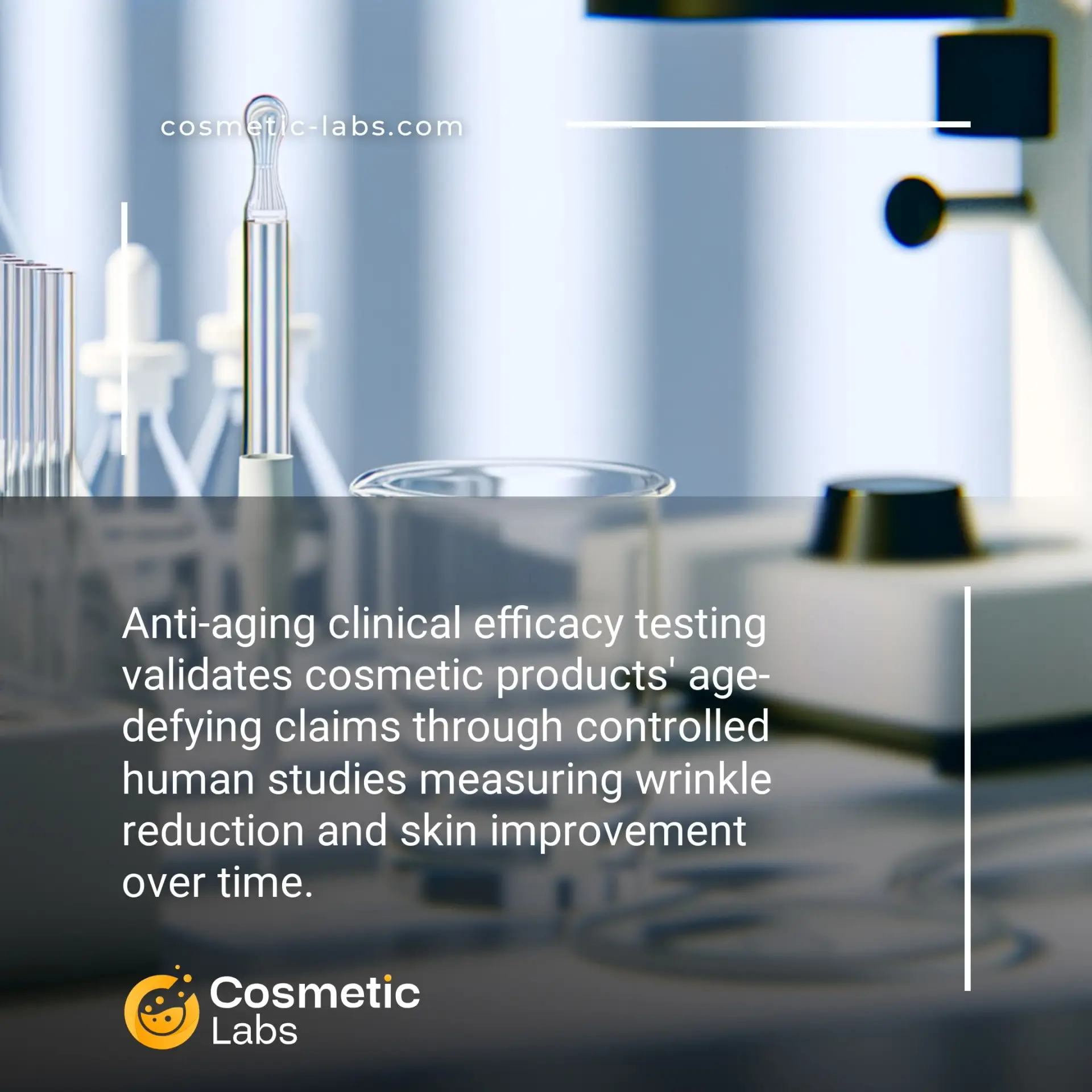Anti-Aging Clinical Testing Services for Beauty Brands

What is Anti-aging efficacy testing?
Anti-aging clinical efficacy testing services validate your skincare products’ age-defying claims through controlled human studies that measure wrinkle reduction, skin elasticity, and hydration levels over 4-12 week periods. Labs on our platform use non-invasive biometric tools like corneometry and cutometry to generate the scientific data you need for marketing claims and regulatory compliance in major markets.
Why do you need this service?
Cosmetic brands use anti-aging clinical efficacy testing to validate wrinkle reduction claims with before-and-after measurements, supporting FDA compliance and marketing campaigns. Teams also leverage dermatological assessments and consumer perception studies to demonstrate measurable improvements in skin firmness and elasticity, building consumer trust and differentiating products in competitive markets.
Who provides Anti-aging efficacy testing services?
All cosmetic labs providing Anti-aging efficacy testing services
There is no company providing these services at the moment.
Anti-Aging Clinical Efficacy Testing Services
Labs verify anti-aging product claims through controlled studies that measure visible improvements in skin appearance and texture. These tests provide the scientific backing needed for marketing claims and regulatory compliance in the competitive beauty market.
Wrinkle Reduction and Skin Texture Analysis
Testing protocols measure wrinkle depth reduction using 3D imaging technology and profilometry over 4-12 week periods. Labs track changes in fine lines, crow’s feet, and forehead wrinkles with precision measurements.
Key measurements include:
- Wrinkle depth reduction percentages
- Skin roughness improvements
- Surface texture smoothness scores
- Elasticity and firmness changes
Results typically show 15-30% improvement in wrinkle appearance after 8 weeks of product use.
Hydration and Barrier Function Testing
Labs assess moisture retention and skin barrier repair using transepidermal water loss (TEWL) measurements and corneometry. These tests demonstrate how anti-aging formulations improve skin hydration over time.
Testing methods include:
- Baseline hydration measurements
- Product application protocols
- Weekly moisture level tracking
- Statistical analysis of improvements
Connect with specialized labs on our platform to design clinical studies that support your anti-aging product claims with robust scientific data.
Real-World Applications of Anti-Aging Clinical Efficacy Testing
Cosmetic brands rely on anti-aging clinical efficacy testing applications to validate product claims and differentiate themselves in competitive markets.
Wrinkle Reduction and Skin Texture Claims
Labs use 3D skin imaging systems like PRIMOS to measure wrinkle depth changes over 28-56 day testing periods. Brands testing retinol serums typically see 15-25% wrinkle reduction after 8 weeks of consumer use studies. Dermatologist evaluations complement instrumental measurements to validate visible improvement claims.
Texture analysis protocols measure skin roughness parameters using profilometry. These tests support marketing claims about smoother, refined skin appearance. Results feed directly into product labeling and advertising copy.
Firmness and Elasticity Validation
Cutometer testing measures skin elasticity and firmness parameters through suction cup methodology. Anti-aging creams with peptides show 10-20% improvement in skin elasticity after 12 weeks of testing. Labs also conduct pinch tests and visual scoring by trained evaluators.
Hydration measurements using corneometry support plumping effect claims. Combined testing protocols create robust data packages for regulatory submissions and consumer communication.
| Test Method | Measurement | Typical Timeline | Key Metrics |
|---|---|---|---|
| 3D Imaging | Wrinkle depth/volume | 8-12 weeks | % reduction in wrinkle parameters |
| Cutometer | Skin elasticity | 4-12 weeks | R2 (elastic recovery) values |
| Corneometry | Skin hydration | 2-8 weeks | Capacitance units increase |
| Profilometry | Surface roughness | 4-8 weeks | Ra/Rz roughness parameters |
Ready to validate your anti-aging claims with clinical testing? Connect with experienced cosmetic labs on our platform to discuss your specific testing requirements and timeline.
